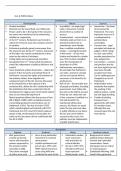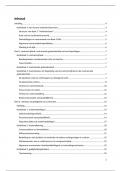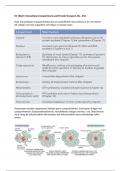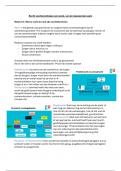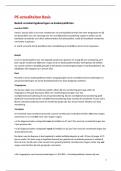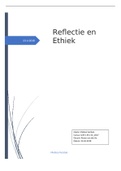Other
UK Government and Politics Notes
- Module
- Unit 2 - Governing the UK
- Institution
- PEARSON (PEARSON)
A comprehensive list of notes on UK Government & Politics - all you need for the Pearson Edexcel A-Level Government & Politics Exam. Covers: the Constitution; devolution; selection to the HoC and HoL; the executive; debates about the two Houses; selection of ministers; the Cabinet; the EU; soverei...
[Show more]
